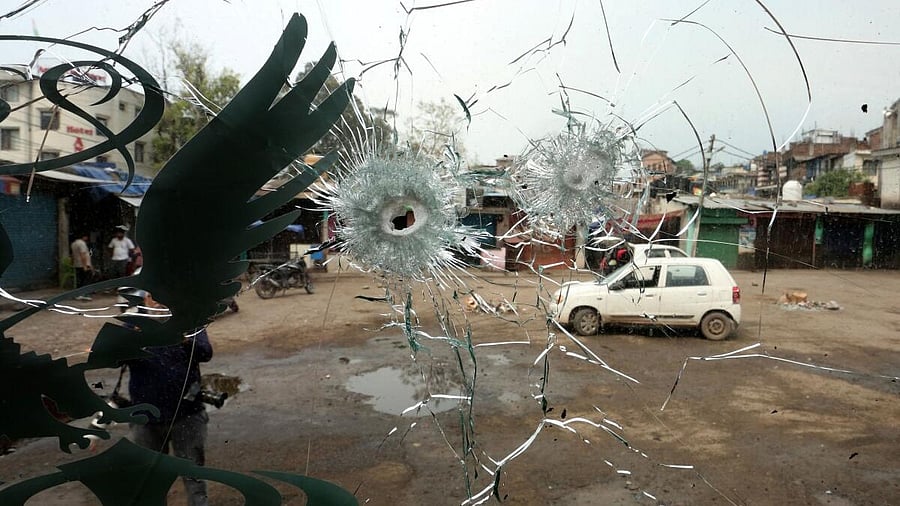
People are seen through the windshield of a bus damaged by a cross-border shelling in Poonch near the Line of Control (LoC) between India and Pakistan, May 8, 2025.
Credit: Reuters Photo
Srinagar: In the smouldering ruins of what used to be homes, hopes and everyday lives, the border villages of Jammu and Kashmir’s Poonch district are mourning their dead—and waiting, trembling, for the next shell to fall.
On Wednesday, 15 civilians, including women and children, were killed and dozens more injured in relentless cross-border shelling by Pakistani forces—the worst in recent years.
Videos that surfaced on social media show charred houses, crumpled vehicles, and people running for cover. In one of them, Rajni Kour stands amid the rubble in Mankot tehsil, holding her 18-month-old niece—her sister Ruby’s baby. Ruby was killed in the shelling just hours earlier.
“We are not safe here,” Rajni says, holding back tears as the baby shifts restlessly in her arms. “We have nowhere to hide. If this happens again, how will we survive? Please give us bunkers. At least let us live long enough to protect our children.”
It is a raw, desperate plea—echoed in hundreds of homes now scarred by blood and fire. The dead were not soldiers, but civilians, who never asked to be part of this war.
Freelance journalist Meha Dixit, who is currently in Mendhar sector—one of the worst-affected areas—described a night that felt like a descent into war.
“I’ve covered conflict for 15 years, but last night was different,” she told DH over the phone, her voice still shaken. “The staff at the small hotel where I’m staying just left in the middle of the evening—no notice, no explanation. The shelling was so loud, so close, the windows rattled. I was alone all night, lying fully dressed, afraid to even move.”
She paused before adding, “It wasn’t just the sound of the explosions. It was the fear that no one would come if something happened. That kind of loneliness—amid gunfire—is something I won’t forget.”
The shelling follows a sharp escalation in tensions after the April 22 terror attack in Pahalgam that killed 26 people. Since then, ceasefire violations have intensified, with civilians once again becoming the frontline victims of geopolitics gone cold and cruel.
The villages along the Line of Control lack basic infrastructure to protect their people, lack underground bunkers, and have no early-warning systems. On Wednesday night, families huddled in corners, behind thin walls, under beds—whispering prayers in the dark.
“Some of them are still too scared to step outside,” Dixit said. “Children are screaming at the sound of passing trucks. People are asking, not for revenge, but for protection.”
Back in Mankot, Rajni Kour’s words ring in the smoky air. “We don’t want much. Just a place to hide when the bombs fall.”
In a land that has known too much loss, even that seems like too much to ask.